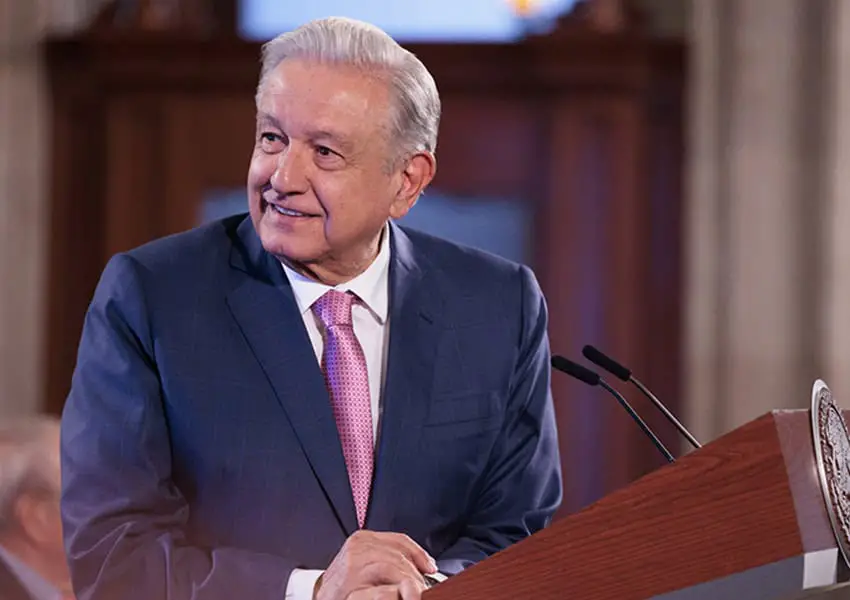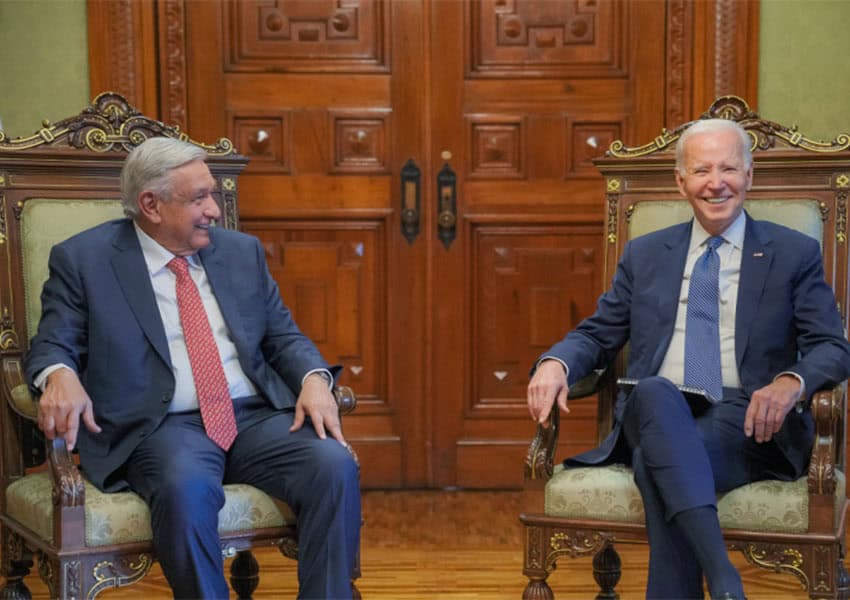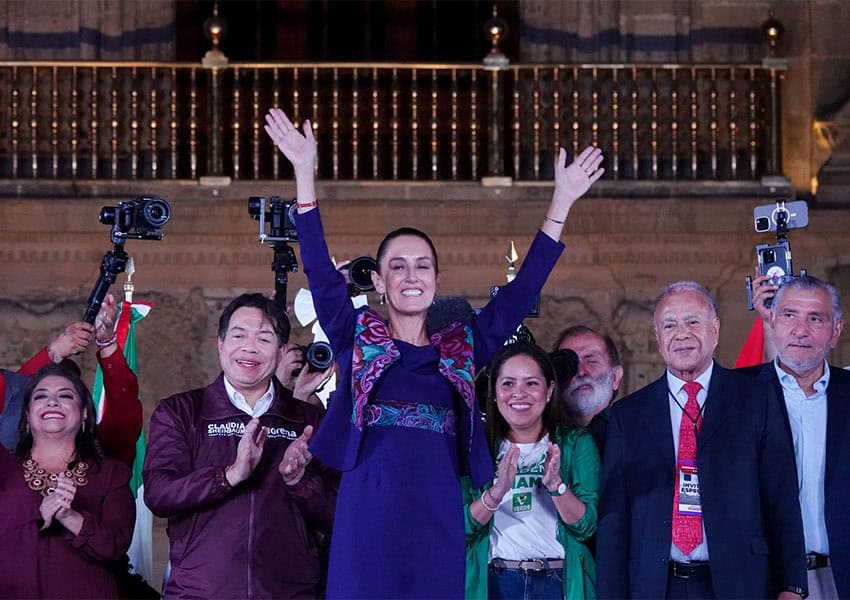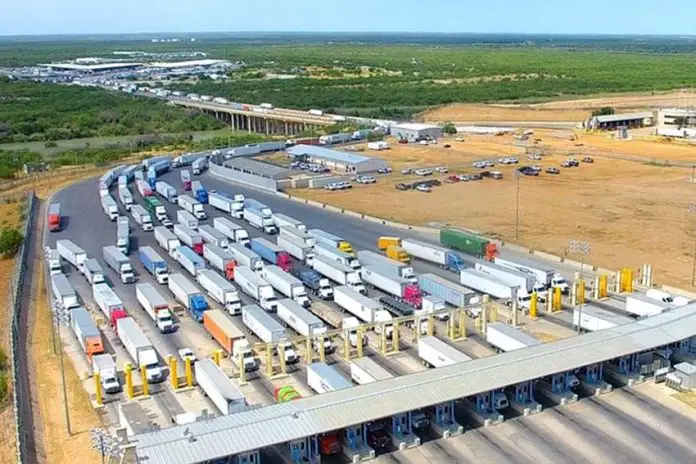United States President Joe Biden has approved three international bridge projects linking Texas to the Mexican states of Tamaulipas and Coahuila.
Biden told President Andrés Manuel López Obrador about his approval of presidential permits for the international bridge projects in a call on Wednesday, just hours after he issued an executive order that prevents migrants from making asylum claims at the U.S.-Mexico border when crossings between legal ports of entry surge.

The U.S. president “informed President López Obrador that he has approved three new permits for international bridge projects in Texas that will benefit local communities and strengthen the U.S.-Mexico economic relationship by building infrastructure that promotes increased trade travel,” the White House said in a readout of the call between the two leaders.
López Obrador told Biden that he would “go down in history as the president who builds bridges, not walls,” according to a statement from Mexico’s Ministry of Foreign Affairs (SRE).
At his morning press conference on Wednesday, AMLO provided additional details about the three announced Mexico-U.S. bridge projects.
One is the “expansion” of the World Trade International Bridge between Laredo, Texas, in the U.S. and Nuevo Laredo, Tamaulipas, in Mexico — across which goods accounting for 40% of Mexico-U.S trade pass.
The other two projects involve the construction of new international bridges between Eagle Pass, Texas, in the U.S. and Piedras Negras, Coahuila, in Mexico and between Brownsville, Texas, and Matamoros, Tamaulipas.
López Obrador said that the three projects will “greatly help the economic and commercial development of the entire region.”

Close Mexico-U.S. collaboration on migration continues
According to the SRE statement, López Obrador and Biden “agreed to continue the close collaboration between the two countries to manage migration in the region and to increase their actions to address the structural causes of migration in Latin America and the Caribbean.”
AMLO confirmed on Wednesday that he had discussed the United States’ new asylum restrictions with Biden.
According to a White House fact sheet, the Biden administration’s new actions “will make it easier for immigration officers to remove those without a lawful basis to remain [in the U.S] and reduce the burden on our Border Patrol agents.”
The New York Times described the U.S. president’s executive order as “the most restrictive border policy instituted by Mr. Biden, or any other modern Democrat.”
Asked whether Mexico would be placed in a difficult situation due to an increase in deportations from the U.S. caused by the new executive order, López Obrador dismissed that possibility.
He said that Mexico was seeking an agreement to have the United States deport non-Mexican migrants directly to their country of origin rather than returning them to Mexico.
“We don’t have a problem [receiving migrants]; we treat migrants very well, all of them, but why use an intermediary?” López Obrador said.
Biden congratulates AMLO on “free and fair” elections
The White House statement said that Biden called López Obrador “to congratulate him and the Mexican people on their free and fair electoral process that resulted in the historic election of President-elect Claudia Sheinbaum.”
AMLO himself described the elections as “the cleanest” in history after opposition presidential candidate Xóchitl Gálvez and National Action Party leader Marko Cortés denounced them as being completely unfair.
The White House also said that “the two leaders pledged to maintain their strong cooperation through the completion of President López Obrador’s term in office and to ensure a stable, productive bilateral relationship during the transition to the administration of President-elect Sheinbaum,” who will take office on Oct. 1.

Mexican officials to promote Isthmus trade corridor in US
The SRE noted in its statement that López Obrador and Biden came to an agreement during their call “that a high-level Mexican delegation would travel to Washington, D.C. this week to present the Interoceanic Corridor of the Isthmus of Tehuantepec and existing investment opportunities to U.S. officials and business executives.”
The trans-isthmus trade corridor, which includes a modernized train line between Mexico’s Pacific and Gulf coasts, has been touted by Mexico as an alternative to the Panama Canal. It will also include a chain of industrial parks.
Mexican officials said a year ago that the government had received 52 letters of intent to invest in the corridor from Mexican and foreign companies, representing US $4.5 billion.
The SRE said that a Mexican delegation headed by Foreign Affairs Minister Alicia Bárcena and Navy Minister José Rafael Ojeda Durán would discuss with U.S. officials and business executives “opportunities to expand the corridor toward Guatemala.”
Mexico News Daily
